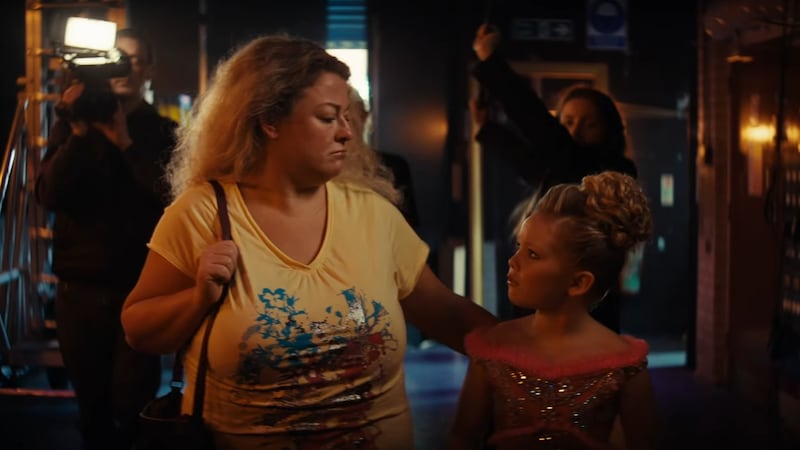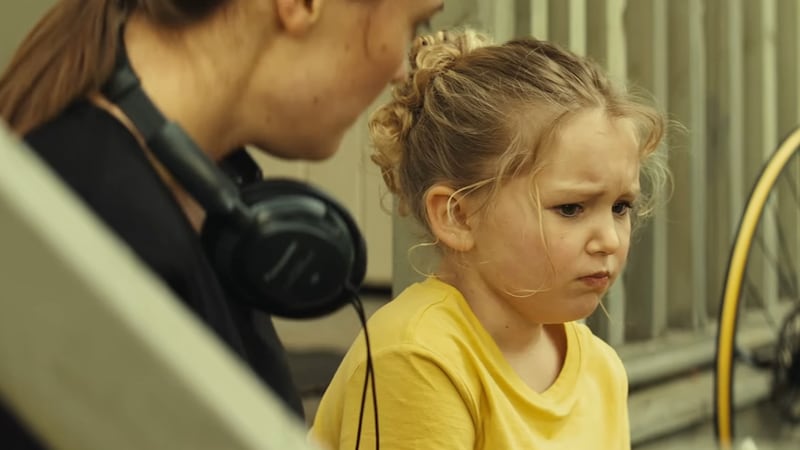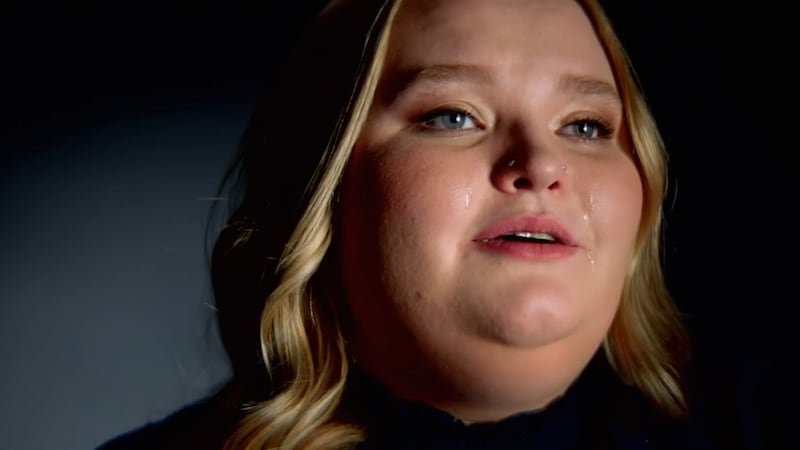In 2012, a six-year-old girl purportedly drew more viewers than the Republican National Convention.
That girl was Alana Thompson, better known by her stage name, “Honey Boo Boo.”
When Thompson first burst onto the scene in an episode of TLC’s Toddlers & Tiaras with her larger-than-life personality and seemingly endless supply of country catchphrases, her star persona seemed tailor-made for reality television. To a large extent it was, thanks to the efforts of family matriarch “Mama” June Shannon, whose ethos anchored Thompson’s headlining show, Here Comes Honey Boo Boo.
Alongside Duck Dynasty and 16 and Pregnant, Shannon and her family’s embrace of self-described “hillbilly” culture coincided with an era where a new wave of voyeuristic, controversial depictions of rural American “white trash” dominated reality television. TLC went on to sign Shannon for shows of her own, even as a trail of substance use disorder, neglect, and issues haunted the family (and TMZ’s homepage) throughout Thompson’s childhood.
Thompson and Shannon’s tenuous mother-daughter relationship is at the heart of the new Lifetime original movie I Was Honey Boo Boo, which Thompson narrates herself through a series of confessional interviews. If the film itself is a paint-by-numbers biopic of exploitation, familial strife, and eventual catharsis, it at least manages to stand on its own by letting Thompson finally tell us that story in her own words.

“For me, it’s not about fame, and it’s not about the money,” she tells the camera. “It’s about a mother and a daughter, and breaking the cycle of abuse.”
I Was Honey Boo Boo largely sidesteps the heyday of Thompson’s child stardom, choosing instead to zero in on how early her younger self’s world shrunk to the scope of her mother’s vicarious gaze. The character June (Chelsea Larkin), who affectionately refers to Alana (played by Vale Cooper as a child and Isabelle Ayres as a teen) as “mama’s little moneymaker,” eagerly bankrolls her youngest’s pageant hobby, living for the thrill of taking home trophies while ignoring her three older daughters’ pleas for dinner or a lousy baseball mitt replacement.
Today, Thompson remembers the day that a TLC talent scout first approached them not as a big break, but the beginning of a near-lifelong “cycle of pain.”
“It started when my mom looked at me, and for the first time, she didn’t just see me,” she intones. “She saw her own potential.”

Honey Boo Boo was TLC’s crown jewel from 2012 to 2014, spanning four seasons and a few subsequent specials. Although the movie largely captures this period through a smattering of increasingly heated fights between June and Alana’s father, “Sugar Bear” (Neil Chinneck), it culminates in a horrifying, underreported real-life incident where Sugar Bear swerved left into traffic, giving one of Alana’s sisters a concussion in the process (to this day, Thompson is still unsure whether he knew what he was doing).
To make matters worse, Honey Boo Boo was soon unceremoniously canceled after June was spotted with her ex-boyfriend, convicted child molester Mark McDaniel. She’s eventually offered a show of her own in 2017, but not before her and her new boyfriend Gino become tangled in a codependent cycle of drug use.
From there, the movie’s runtime is almost solely devoted to a dreary routine of June promising to be there for her daughters, only to devastate them with another viral unexpected scandal. She might book Alana on Dancing With the Stars Junior and surprise her with a family vacation, but those gestures of kindness are immediately undercut by the revelation that she’s been arrested for possession of crack cocaine or the threat of dealers she’s in debt to trailing Alana’s older sister Pumpkin (Georgia Small) for days.

None of these incidents are hard to track down in the family’s Wikipedia footnotes—here, the only difference is that they’re communicated through a stray hypodermic needle found in Pumpkin’s slipper rather than a headline.
While it’s nice to see Thompson get the chance to tell her side of the story, I can’t help but wish that her tell-all came in the form of a documentary that could provide context for the enduring, problematic popularity of media caricaturing working-class, white Southern culture, or the pervasiveness of substance use disorder, or the ways in which we’re just starting to reckon with how our culture eviscerates young girls in the spotlight.
A few crucial points in the family’s story—Thompson’s oldest sister Anna’s death from cancer and her boyfriend Dralin being arrested for driving under the influence with her in the car—were inexplicably omitted from I Was Honey Boo Boo entirely.
Ultimately, though, Lifetime is chiefly concerned with how Thompson and Shannon’s relationship finally hit a breaking point. As anyone who’s struggled to reach out to a loved one in crisis can tell you, in the end, the only person you can control is yourself.

After Alana discovers that June refuses to help pay for her nursing school college tuition—in fact, she allegedly kept most of Alana’s Dancing With the Stars paycheck for herself—she finally decides to stop having any expectations of her mother. A
s she becomes the first member of her family to head off to college, I Was Honey Boo Boo gets to have its cake and eat it, too—there’s a narrative satisfaction of watching an exploited child chart her own course apart from her mother, and it’s open-ended enough to suggest that maybe, just maybe, Shannon will change her ways someday. Not that Thompson is counting on it.









